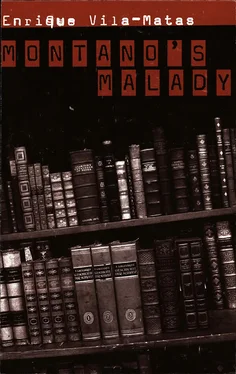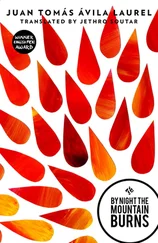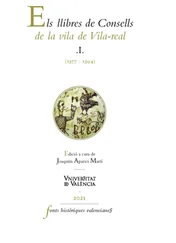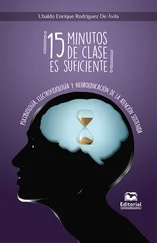I remembered the horrible potato salad we had eaten. And by an association of images, perhaps searching the domestic and ordinary for something to hold on to in the metaphysical fog I was beginning to move in, I recalled Rosa three days before, rubbing her eyes with the back of her hand and then taking a saucepan of boiled potatoes from the fridge and tossing them into the salad bowl. I had stopped on the threshold of the kitchen, watching her and the remains of the red umbrella to which I attribute creative virtues; I had stopped to observe the vibrant operation, watching how Rosa washed a stick of celery under the tap, cut it into little pieces and then threw it on top of the potatoes, while, with her old habit of doing everything quickly, she emptied a whole can of olives into the salad bowl and some chopped onion and a cloud of cayenne pepper. It was only three days since I had witnessed Rosa prepare that dinner with her customary speed, but it seemed like an eternity. Because in these parts, on the byroad, commonplace cans of olives and ordinary chopped onion seemed to represent the soul of the conventional home, miles away by now, finally abandoned for good from the precise moment I had strayed into the thick mist of the area of darkness.
I might bump into Musil, I told myself. Everything was extremely senseless, but to seek Musil was even more so. He was hiding no doubt because he had discovered the real intentions of Action Without Parallel, a false resistance movement that had infiltrated the wall. Action’s henchmen, as in a bad adventure story, were after him to eliminate him. That at least is what I thought I understood from the signs sent to me, from cracks in the wall, by the Chinese conspirators, on the alert against Action’s movements. At one point I looked for someone to discuss this with, but the byroad was empty. With my book by Montaigne, I kept going, another night fell on the night that had fallen five hours before. Suddenly I saw a shadow move next to an empty house. I thought it might be — my mother had prophesied this in her diary — Hamlet asking after Rosario Girondo. I also told myself that it might be Emily Dickinson, with her white housecoat and sad dog. But it wasn’t Hamlet, it wasn’t Dickinson. It was a woman very like the young Montano, who said she was called Mzungu, just as the native Africans called the first white explorers. “‘He who walks without direction’ is what Mzungu means,” she explained. She was dressed in an old-fashioned way, with a thin lace net covering her dark hair, a collar gathered on a black velvet mantilla, her feet in buckled shoes. She was young, but her face changed at times and seemed to come from time immemorial. I walked with her while the night that had grown inside the first night lasted, I accompanied Mzungu’s steps until dawn. At first light, I decided to carry on alone. She was shortsighted, she came up to say good-bye, in fact she came up to see if I had aged at all in the last hours. “Good-bye,” she said to me, “die sane and live mad.”
“Good-bye, Montano, good-bye,” I answered. I walked for hours until, turning off the byroad, I entered the silence of a forest without birds. Leaving behind the wood, I walked with Montaigne’s book and Mzungu’s memory along an infinite road that finally narrowed and turned into something like a winding staircase. And suddenly I saw Musil next to an abyss with his white open-necked shirt, a very black coat down to his feet, and red, broad-brimmed hat. He was staring thoughtfully at the ground. He seemed to be measuring the speeds, angles, magnetic forces of the fugitive masses of the abyss that opened before us. He raised his head and looked at me. Before us there was only void, Action Without Parallel and other enemies of the literary had us surrounded. “It is the air of the time, the spirit is threatened,” I said to him. Musil looked toward the uncertain horizon. In the distance, far away, beyond everything, like a mirage of salvation rising from the void and the abyss, the sea was visible, with its shoals, and swarms of white, triangular sails. “Prague is untouchable,” he said, “it’s a magic circle. Prague has always been too much for them. And it always will be.”












